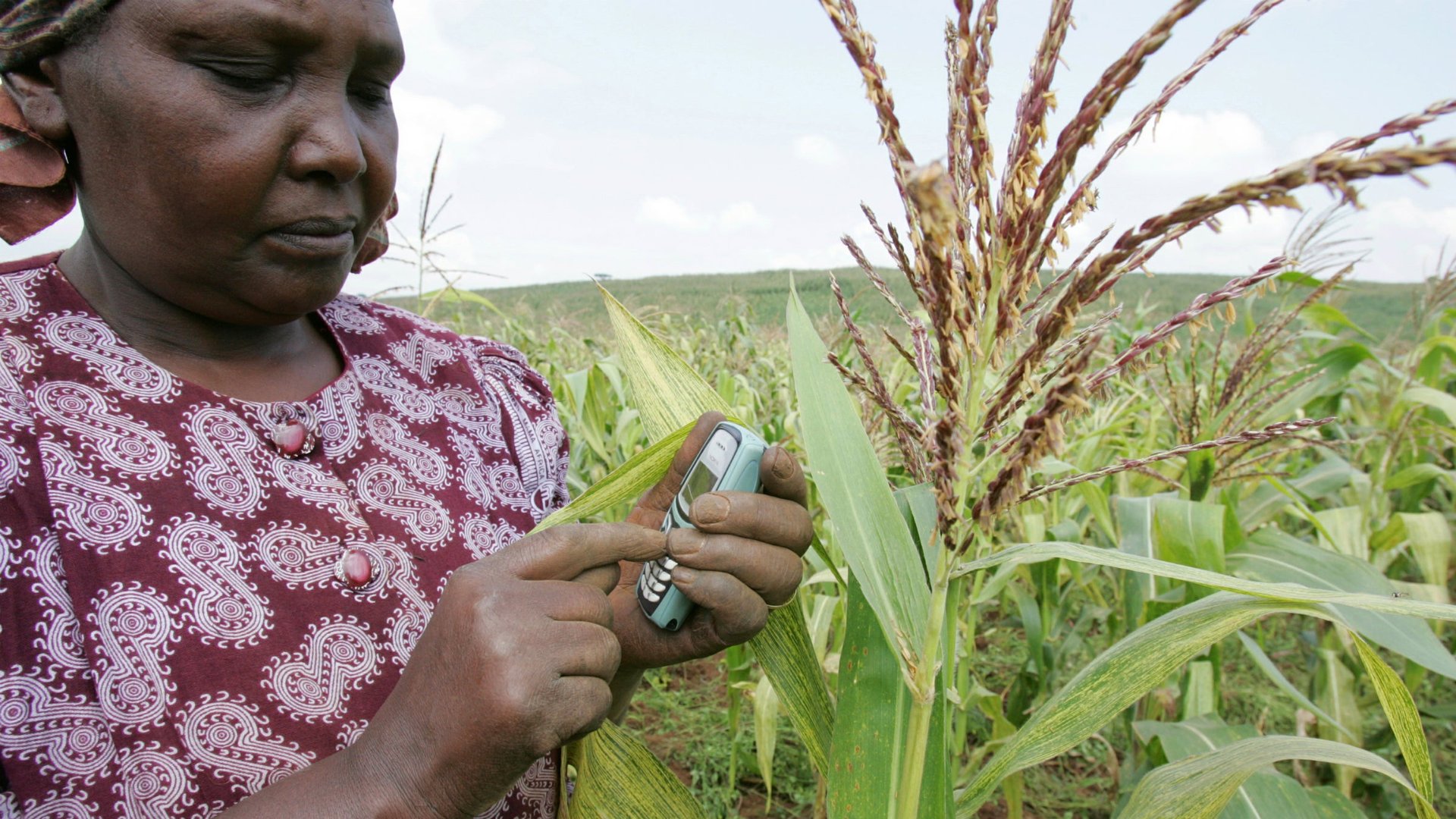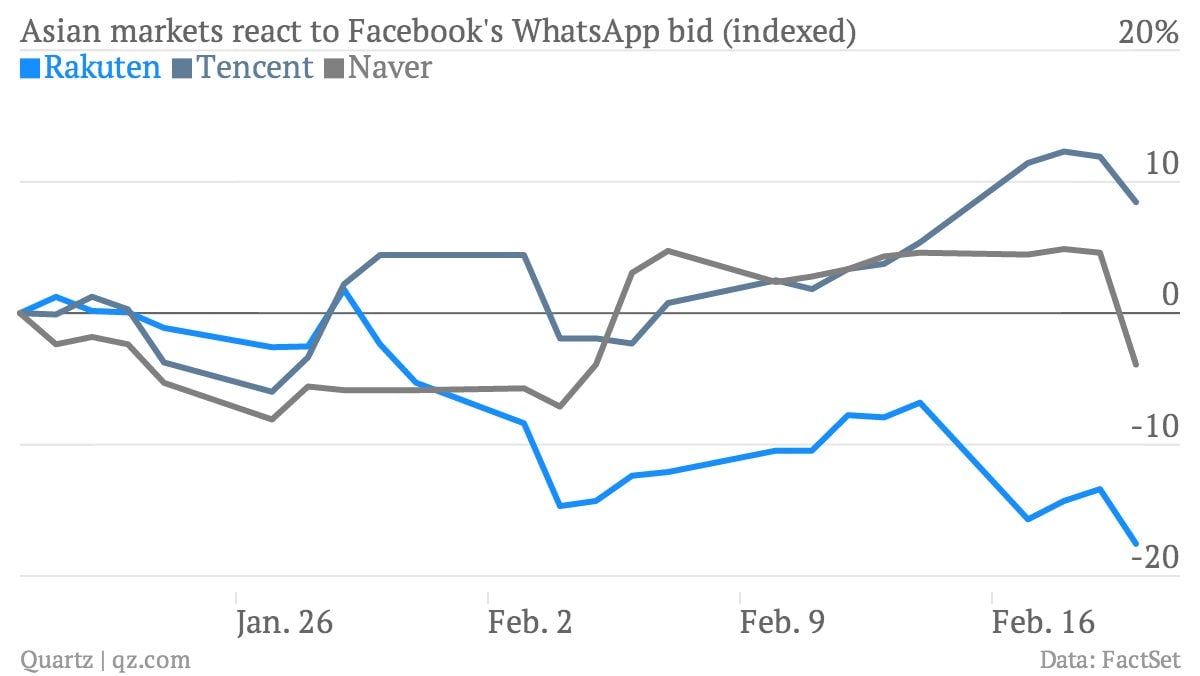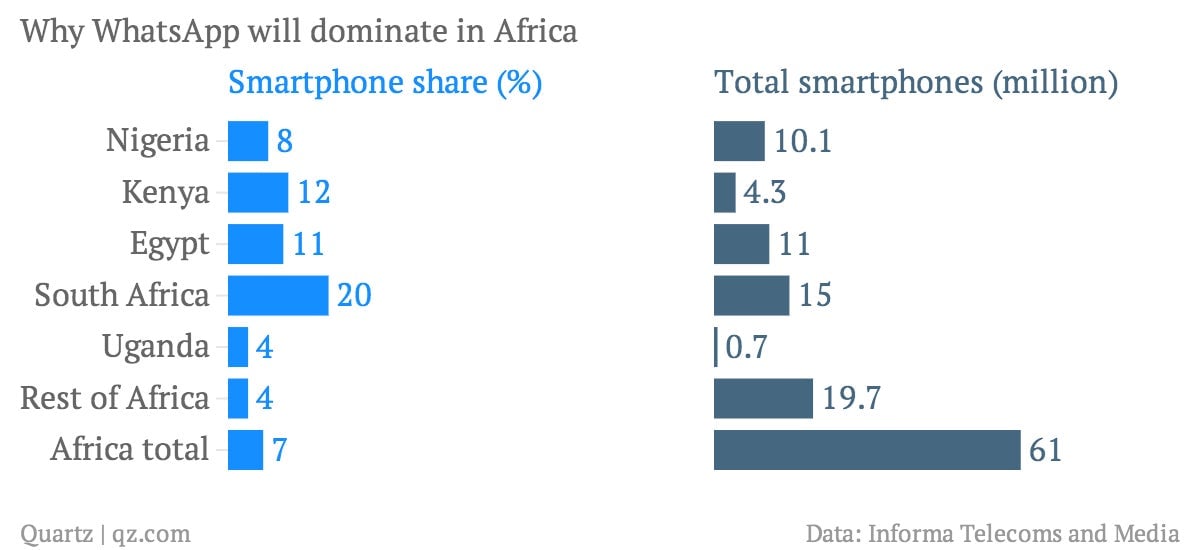WhatsApp gives Facebook a lock on the planet’s next billion mobile internet users
The $19-billion valuation that Facebook just conferred on WhatsApp should, in theory, have come as vindication for investors in the app’s competitors, namely Tencent, Naver and Rakuten (which own WeChat, Line and Viber, respectively). Not so, apparently:


The $19-billion valuation that Facebook just conferred on WhatsApp should, in theory, have come as vindication for investors in the app’s competitors, namely Tencent, Naver and Rakuten (which own WeChat, Line and Viber, respectively). Not so, apparently:

Those who dumped the stock were right, but for the wrong reasons. As the Wall Street Journal theorizes (paywall), the likely reason for Tencent’s drop was that its market capitalization implied a WeChat valuation of $95 per user—more than twice what Mark Zuckerberg’s throwing at WhatsApp on a per-user basis. But though that “per-user” metric might be behind Tencent’s and the other companies’ plunging share prices, there’s a much better reason to bet on WhatsApp’s eventual toppling of its competitors.
While its spiffier competitors wage an expensive, Baratheon-style battle in developed markets around the world, WhatsApp has a lock on the markets where the truly explosive long-term growth lies—a strategy that Facebook will only amplify.
WhatsApp is “the de facto standard for messaging” in Africa, offering ”an awesome messaging experience to the middle billion, those living on $10 a day” or less, as TextIt, a Rwanda-based tech company, explains in this blog post. It does that through its Java 2 Mobile Edition (J2ME) version, designed to work on regular (non-smart) phones. Though that’s scarcely been mentioned in the acquisition hullabaloo, it’s huge considering how limited smartphone penetration is in Africa:

And that’s just Africa. There are many hundreds of millions more users of “feature phones,” as non-smartphones are called, in Asia and Latin America.
That’s not to say Facebook will easily or immediately be able to capitalize on WhatsApp’s “feature phone” network. But Zuckerberg clearly isn’t sweating that. With its launch of Facebook Zero, the company already indicated that it is focused on a longer-term approach to building its user base. As Christopher Mims described it, Facebook’s plan to lock down the next billion mobile phone users is to “convince them the internet and Facebook are the same thing.”
Where does WhatsApp’s J2ME fit into that strategy? Not only will Facebook now be synonymous with the internet among billions of future mobile users. It will now be synonymous with instant messaging to boot.